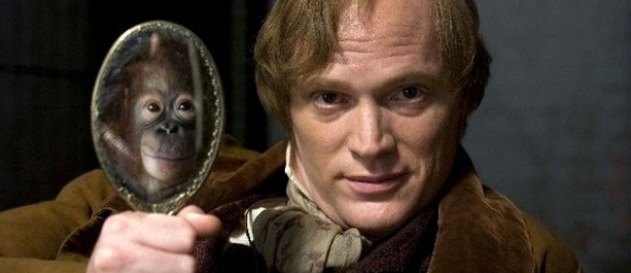
Movies are built on conventions, presumptions, and clichés—they rely on us knowing certain things in certain ways; mutation is welcome, but rare. And yet, any lingering stereotype of the scientist as member of a cold, hermetically sealed species is all but exploded by Creation (opening January 22), director Jon Amiel's new film about Charles Darwin and the all-too-human aspects of his life: his writer's block, his mourning for his daughter, and his efforts to overcome his reticence about the bombshell he was dropping on the Victorian world.
"In some ways, he was a very conservative man," said the film's screenwriter, John Collee—who is not, it should be noted, a conservative man. A medical doctor who served in aid situations in Sri Lanka, Madagascar, and other far-off posts ("My daughter was born in the Solomon Islands; I met my wife in the Soviet Union"), he gradually gave up medicine for writing—first novels, then screenplays, most recently one about the author of On the Origin of Species.
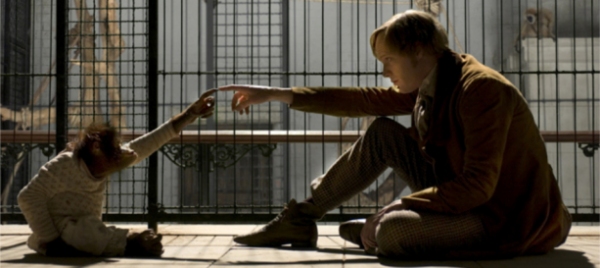
"He did think that if we were to pull this thread the whole thing would unravel," Collee said, about the Darwinian debunking of biblical "truth." "They'd just come out of an age of revolution, economic and military cataclysm. And Darwin did sort of fear the consequences." Besides, Collee said, there was Darwin's relationship with his wife, a staunch believer. And his standing in the community. "And he was also deeply guilty over Annie."
Anne Elizabeth Darwin's death at age 10 devastated her parents, and that grief is at the heart of the Randal Keynes book Annie's Box, from which Collee and Amiel (The Core, The Tudors) adapted Creation. Though the film doesn't dwell on it, part of the guilt Collee referred to was based on Darwin's fear that, because he and his wife, Emma Wedgewood, were first cousins, his children had inherited weaknesses. But it had been Darwin who took Annie to Malvern for her ill-fated hydrotherapy treatments (for what was probably tuberculosis), and the idea that the great scientist himself would be victimized by medical quackery is just one of the ironies of Collee's screenplay.
"I wanted to make the point that science doesn't know all the answers," Collee said. "And there are plenty of scientists who, like it or not, are wedded to ideas that make no sense at all. Although, in a way, that's how science advances."
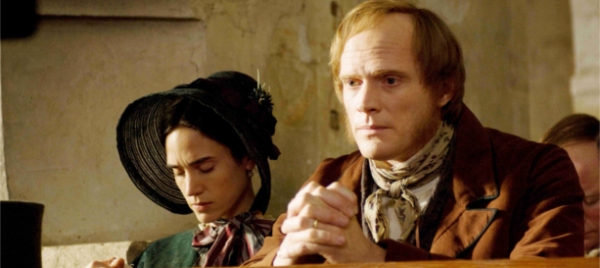
Creation is not a "campaign film," Collee said. "Neither does it suggest that there's no value at all to religion," he added. "How I see Charles and Emma's relationship is that they have this tragedy of the death of their daughter, and the evolution argument highlights it—the ways of dealing with the unknown, the inexplicable, the tragic in our lives. Either you retreat into the consolation of religion, as Emma did, or you retreat into the consolation of science, as Darwin did. And neither of these two things is right or wrong." As portrayed in the film, Emma, played by Jennifer Connelly, "believed passionately that there was an afterlife, and that gave her sustenance. Darwin [played by Connelly's husband, Paul Bettany] believed passionately in the theories of evolution, and for him that gave meaning to his daughter's death. What finally brings them together is the realization that these are both ways of reaching a language of the heart that trumps both these ways of thinking."
Reached at his home in Australia, Collee said the argument there over evolution is less polarized than in the United States. "We don't have the more extreme aspects of it, whereas in certain U.S. states they teach creationism in school. But there are certainly some people who don't accept evolution."
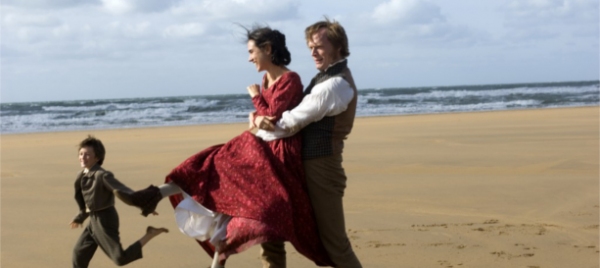
He said the modern-day equivalent of the evolution debate is the argument over climate change. "It's no longer about trying to convince people of the logic of the idea," he said, with a mild laugh. "You can talk yourself blue in the face about the scientific proofs about climate change—which I believe is true beyond a shadow of a doubt—but you will never get past the need of people to believe in something else. That's what we've run up against in the whole climate-change campaign—that we've come up against the unspeakable and people's minds aren't ruled by logic. It's the passions of the heart. It's why James Hanson is tearing his hair out. 'Why won't they listen to the argument?' And the truth is that scientific fact is only part of what governs our lives. Mysticism and the subconscious govern the rest of it."
But the perfection of logic in Darwin—like the mathematics in Bach or the geometry of Da Vinci-speaks to something basic in human perception. And what Creation acknowledges, in its subtle fashion, is the aesthetic appeal of evolutionary theory.
"Absolutely," Collee said. "I've always been fascinated by the notion of the golden mean, that there is scientific logic to aesthetics—that our response to natural beauty and beauty in art and music are all actually responses to an underlying, mathematical logic in all these things. I love that whole idea. And I think the [reason] that Darwin's theory endured and was picked up by so many people is that there's a perfection to it. It's like E=MC2. It's so simple! Arrived at via a massively complex process of reasoning, but the central proof is so essentially simple and clear."
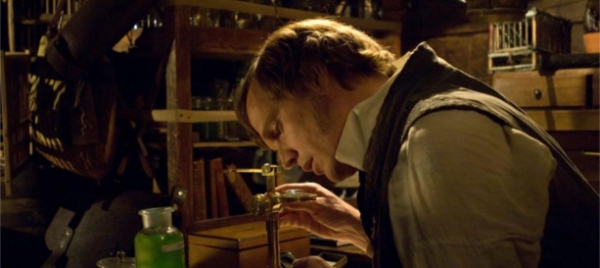
And yet, resisted to this day—150 years after the publication of what it took Darwin 20 years to write.
"We tried to condense the 20 years of writer's block on Darwin's part and say, 'What are the forces drawing him toward truth, and what were the forces blocking his acknowledgment of the truth?'" Collee said. "Part of it was his fear of dismantling the very big barge we're sailing on—he'd studied theology, initially, at Cambridge, and he certainly believed that the structure of Christian religion was holding society together."
Like Darwin, Collee studied medicine in Edinburgh; unlike Darwin, Collee got a medical degree and traveled, practicing in what he called "disease locations" in Asia, Africa, and the West Bank. His column on medicine in the Observer ran from 1991 to '96, and his novels—Kingsley's Touch, A Paper Mask, and The Rig—led him to screenwriting; Collee also wrote the screenplay to Paper Mask, which led him into Amiel's orbit, and the two became friends. "The Creation screenplay actually started during a Ping-Pong game in Malibu," Collee said. "We were just literally batting ideas back and forth about how to dramatize the story."
And drama is something that has always spoken to Collee. "It's a funny thing," he said, "but the nature of medicine is that it's a very kind of linear and didactic specialty and those of us who have a lateral-thinking part of our brains find that part of the brain not getting exercised. So you either go into research or write a novel. I took the latter option."